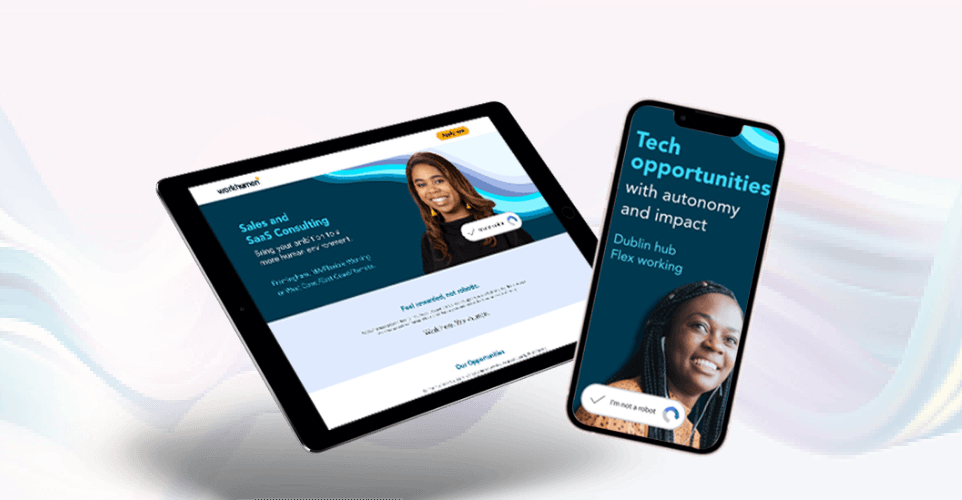I’ve been researching diversity issues for the past 7 years. My Masters concentrated on cultural studies and transnational issues, looking at Paul Spickard’s Almost All Aliens, Bhikhu Parekh’s Rethinking Multiculturalism or Andrew Gable’s Britishness: Perspectives on the British Question. In 2016 this is surprisingly topical again as issues around Britishness and what it means to be English, Welsh, Pakistani-British or even European have been on everyone’s mind these past few weeks. In my PhD studies I concentrated on representations of identity constructions in Postcolonial cinema – as interesting as this may seem, the practical implications of this research are rather limited, even if you include face-to-face interviews and fieldwork.
A little over a year ago I then braved the “real world” and found an employer that allowed me to apply the research skills I developed working in academia to corporate research. They took me on board – European passport, academic experience and “Graduate+” mentality and offered me the chance to gain qualitative market research experience. Employer branding. Little did I know when I started here that this field, as narrow as it may seem to some, has a direct link to diversity and inclusion sitting between this discipline and branding and marketing. What had started out with reading Benedict Anderson’s Imagined Communities now continued with Richard Mosley’s Employer Brand Management, proving that it is vitally important to recognise how diversity and inclusion impact recruitment and retention strategies, and in turn, how this affects the bottom line.
Diversity in the workplace
Research shows that a diverse workforce is more productive. Our own particular research, working with Ericsson on Women in Tech, with BNP Paribas on their Diversity and Inclusion Week and with The Army on recruitment of people with diverse backgrounds – to name but a few – reiterates this. However, the research also shows that people believe diversity and inclusion are matters that go beyond gender, sexuality, skin colour or whether or not someone’s parents were born in a different country. A case in point here is the latest generation of female rights activists – such as Emma Watson and Lena Dunham who prove that they care passionately about equal rights and equal opportunities, despite the perception that Gen Y cares less about these issues.
Recognising diversity as the one factor that unites the entire workforce means looking at any point of difference and identifying how this could be used to make the workforce stronger. Looking at age and generational differences and similarities brings a new perspective to the table: diversity is not just a question about background or gender, but also about the time spent at work and the times in which we grew up have shaped our identity and made us into the employees we are today.
Talent Works International’s first in-house commissioned research project, “Gen Up” focuses on generational differences (and a lot of – often unexpected – similarities). How do Gen X, Gen Y and the Baby Boomers differ from Gen Z in the workplace? And how should employers react to this to enhance employee satisfaction and through that increase productivity?
A diversified employment proposition appears to be the key for this in a time when jobs for life are less and less common – only few people expect to stay in their role until retirement age in today’s job market. This makes it more and more important to not just promise candidates great development and team-working opportunities – good candidates will leave in the pursuit of this – but to acknowledge the different expectations of the employer. What, then makes you a great employer for all ages?
Diverse doesn’t mean different
Our research has shown that Gen Z want more feedback from their line managers than the older generations and they are more concerned about team development. This is understandable, judging that they still need to find their feet in the workplace and a great way to do this is by becoming part of a team. What is surprising, however, is that they are much more inclined to work out of hours or to accept having to do this on a regular basis. They are therefore not the lazy kids many sources make them out to be – they probably recognise the sacrifices they have to make to be successful in their careers. And they have not yet experienced an unsatisfactory “work-life balance.” Equally as surprising is that Baby Boomers are unsatisfied about the communication they receive from their line managers. Just because they are older, doesn’t mean they don’t still want to develop.
The message to employers here is clear: offer training and development opportunities to all your members of staff! Be inclusive and look past their seniority (age and job role) and embrace diversity. We can all learn from people with different life experiences: the Senior Manager who is reminded of how her career started, the graduate who benefits from having career-heroes that help him move up the ladder or the mid-career manager whose team has flexible hours and excels through their diverse backgrounds that are complimenting each other, a fact that benefits him or her as much as the team and the business.
Communication is the key to unlocking any generation’s success – and all generations prefer face-to-face communication by a large margin. Additionally, they agree that open-plan offices, regular updates from line-managers and an open and friendly office culture. That said, Baby Boomers don’t value good communication as much as the rest – probably because they have learned to live with what they’ve got and see self-motivated and flexible colleagues as more important when looking at the ideal employee. Baby Boomers are also more in favour of individual offices than other generations, which might be a historic afterthought or an indicator of more senior roles that require a certain level of privacy.
Flexibility is key

Another fact we’ve learned over the years, and which has come through very strongly in Gen Up research, is that a flexible approach to work has a direct impact on retention and productivity of high quality talent. Regardless of seniority (again, age AND role), everyone prefers flexible work patterns and see working from home/remote working options as important when thinking about attractive employers. Offering a mix of working individually and in a team stimulates employees and enhances productivity. Similarly, getting along with work colleagues is extremely important to all generations, with around 90% of all generations agreeing that this is either “very important” or “fairly important”. Gen Y respondents were more interested in workplaces that offer on-site childcare than respondents from other ages, which is unsurprising given that they are more likely to be faced with childcare issues than the other respondents. This, however could be seen as the gateway to flexible working.
Seeing how the generations share views on the workplace, from remuneration to office culture, but also recognising the differences, means it is important to speak to all of them, and to make them all feel included. Whether this is through different tones of voice in your messaging or through offering the different generations opportunities tailored to their preferences. Even if all of them have similar expectation of the workplace, the way of getting there might not similar. Recruitment messaging therefore should be targeted yet should also focus on the differences and similarities – embracing these to enhance employee satisfaction and ultimately productivity.
Diversity at Talent Works International
I’m speaking from my own experience here. I’m working in a team that bridges three generations and we work very well together. We have found a way of communicating that works for all of us and we value individuality and benefit from it. None of this would be possible without our employer giving all 8 team members the opportunity to grow and still respecting our individuality. Even though we might not be a very diverse team in the traditional “gender, sexuality, ethnicity” sense of the term, my European passport being the slight divergence from the norm here, we are diverse in regards to age and attitude. We embrace this diversity and our individuality and we give each other space. This research has given us the opportunity to think about what our colleagues might think about the ideal employer, the ideal work environment and whether or not phones at work are acceptable (between 72% and 83% of respondents agreed here). In order to be an inclusive employer, companies should embrace age diversity and recognise the potential of a diverse workforce in every sense of the term.
The research will shortly go into its second phase focusing on the employers’ perspectives on the different generations, expectations, shortfalls, wants and must-haves. We already know that diversified messages are becoming more and more important when thinking about recruitment and retention. It would be great to see what you think of these issues. Do you agree? Are you surprised? Would you like more information on this?
Talent Works International offers a wide range of possibilities for employers to engage with the research and further enhance knowledge about making each workplace more productive by embracing diversity in all its forms and being more inclusive. We also deliver workshops, webinars and talks on this, as well as working with you and your employees on how to maximise the mechanisms already in place within your company.








